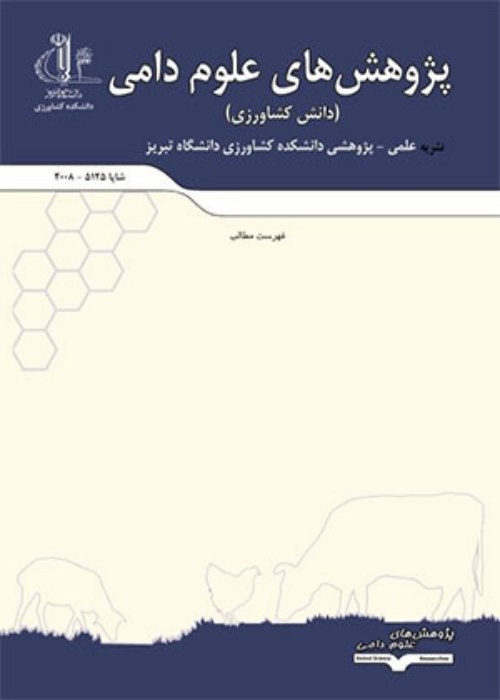The effect of cobalt source and level on serum vitamin B12, performance and feed digestibility of male goat kids
Author(s):
Abstract:
Introduction
The essentiality of cobalt (Co) in ruminant nutrition and its key function in ruminal vitamin B12 synthesis has been clearly demonstrated by previous literature (Russell, 1944; Marston, 1952; Smith and Loosli, 1957; Smith and Marston, 1970). The National Research Council (NRC, 2007) lists the dietary Co requirement of goat kids with 20kg body weight to be 0.07 mg Co/d; However, in lambs Bishehsari et al. (2010) demonstrated that supplementing the diet with more than twice the NRC recommendations with cobalt-sulphate increased plasma vitamin B12 concentration, final body weight, average daily gain and gain efficiency. It has also been demonstrated that increasing amounts of dietary cobalt supplementation causes elevated serum and liver vitamin B12 concentrations in sheep, however no benefits in animal performance were observed (Kawashima et al., 1997a). The NRC (2007) recommendations of 0.1-0.2 mg Co/kg dry matter (DM) in sheep are based on observations in grazing animals (Wang et al., 2007). For a long time, mineral requirements of goats have been considered as a halfway between those of cattle and sheep (Meschy, 2000). However, based on several reports (Kišidayová et al., 2001; Johnson et al., 2004; Wang et al., 2007; Bishehsari et al., 2010), the levels of 0.1-0.2 mg Co/kg DM do not meet rumen microbial Co requirements for vitamin B12 synthesis in sheep or goats.Material and
Methods
Thirty weaned male goat kids, with an average body weight of 17.8 kg were randomly assigned to five treatments including: 1) Basal diet containing 0.076 mg Co/kg DM (Control); 2 and 3) basal diet 0.25 and 0.5 mg Co/kg DM as Co-sulphate (sulphate 0.25 and sulphate 0.5); 4 and 5) basal diet 0.25 and 0.5 mg Co/kg DM as Co-glucoheptonate (glucoheptonate 0.25 and glucoheptonate 0.5). This study was conducted in two trials. The first and second trials were carried out in 75 and 14 days, respectively, as a 2×2 factorial experiment based on a completely randomized design. Blood samples were collectedon days 0, 35 and 75 of the first trial. And during the second trial, feces, urine and feed orts samples were collected.Results And Discussions
Serum vitamin B12 was elevated during the trial in the Co supplemented groups as compared to control. Although the differences between treatments were not statistically significant on day 35, the 0.5ppm levels (sulfate and glucoheptonate) had numerically higher vitamin B12 concentrations. On d 75, differences between organic and inorganic supplements were more pronounced as the two organic treatments regardless of level had higher serum vitamin B12 concentrations (PConclusion
The overall data obtained by comparing the Co treatments showed that the concentration of 0.076 mg Co/kg dry matter of the basal diet seems to be marginally insufficient for goats and additional Co may be required.Keywords:
Goat , Cobalt , Glucoheptonate , Digestibility , Vitamin B12
Language:
Persian
Published:
Journal of Animal Science Research, Volume:27 Issue: 1, 2017
Pages:
173 to 187
magiran.com/p1712192
دانلود و مطالعه متن این مقاله با یکی از روشهای زیر امکان پذیر است:
اشتراک شخصی
با عضویت و پرداخت آنلاین حق اشتراک یکساله به مبلغ 1,390,000ريال میتوانید 70 عنوان مطلب دانلود کنید!
اشتراک سازمانی
به کتابخانه دانشگاه یا محل کار خود پیشنهاد کنید تا اشتراک سازمانی این پایگاه را برای دسترسی نامحدود همه کاربران به متن مطالب تهیه نمایند!
توجه!
- حق عضویت دریافتی صرف حمایت از نشریات عضو و نگهداری، تکمیل و توسعه مگیران میشود.
- پرداخت حق اشتراک و دانلود مقالات اجازه بازنشر آن در سایر رسانههای چاپی و دیجیتال را به کاربر نمیدهد.
In order to view content subscription is required
Personal subscription
Subscribe magiran.com for 70 € euros via PayPal and download 70 articles during a year.
Organization subscription
Please contact us to subscribe your university or library for unlimited access!



